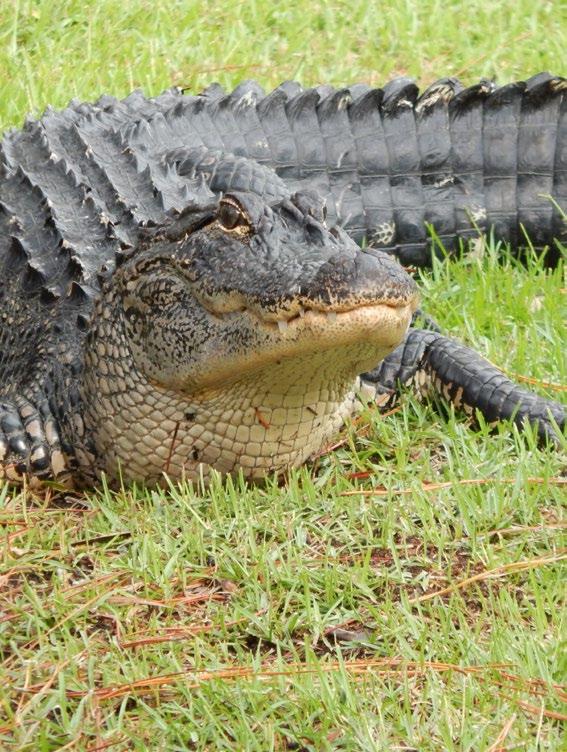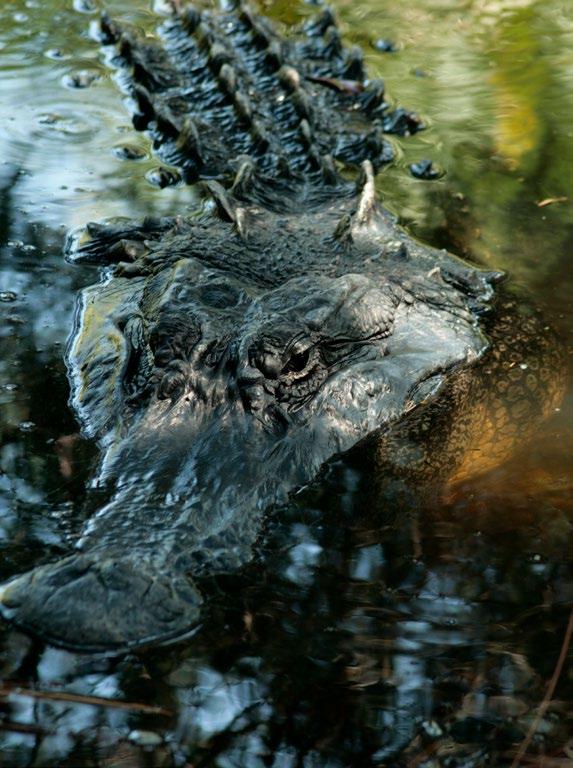
2 minute read
ALLIGATORS ON THE PROWEL Submitted by FI Wildlife Management Planning Task Force, via Courtsey of Katherin Kokal, of the Island Packet and Beaufort Gazette
©erinpickering The information in this article was adapted from a Beaufort Gazette article, “It’s that time of years gain—alligators on the prowl” by Katherine Kokal at The Island Packet & Beaufort Gazette. The original article was published March 09, 2021. We want to thank Katherine Kokal for allowing us to include the information into the Trawler.

Advertisement
-- Fripp Island Wildlife Management Planning Taskforce
Alligators on the Prowel
“Spring is mating season for the American Alligator, which means you’re more likely to see males moving among lagoons to meet their mates between late March and early June.
ALLIGATOR SAFETY
Here are some tips for alligator mating season:
• Scan the edges of lagoons for gator activity: Steer clear, no matter the size of the alligator.
• Never, ever feed an alligator: Alligators are more likely to approach people if they’ve been fed before, according to SCDNR.
• Remember that while alligators are mostly freshwater animals, they can survive in salt or brackish water for several hours or even days,
according to the National Oceanic and Atmospheric administration.
If you’re approached by an alligator, wildlife expert Corbin Maxey told Business Insider you should back away without turning your back on the alligator. If you’re being bitten by an alligator, Maxey said not to attempt to pry open the animal’s jaws. Instead, attack the animal’s sensitive snout and hit its eyes.
Most importantly, Maxey said not to play dead. Ideally, you’d stay out of the animal’s territory in the first place, he said.
WHAT TO DO WHEN YOU SEE AN ALLIGATOR...
1. At the beach: If an alligator is swimming in the water or on the beach, tell a lifeguard and get out of the water. Alligators can survive in salt water for only a couple of days.
2. On the golf course: Clear the area and maintain safe distance. Allow the alligator to get to its destination and warn other golfers. Report the alligator sighting to the clubhouse.
3. On a bike path or in a public park: Keep your distance and encourage other riders or park users to do the same. Allow the animal to pass.
4. In your backyard: Stay inside and keep track of children and pets. Report the alligator to [Fripp Island Security].

photo ©dzoeckler
If an alligator does not appear aggressive, you can keep your distance and let the animal be in nearly all circumstances.
When an alligator begins to threaten people or pets, it may be time to discuss with the SCDNR the gator’s removal.
SCDNR’s helpline, (800) 922-5431, will connect you with a biologist and help you determine the next steps, according to agency spokesperson David Lucas.










